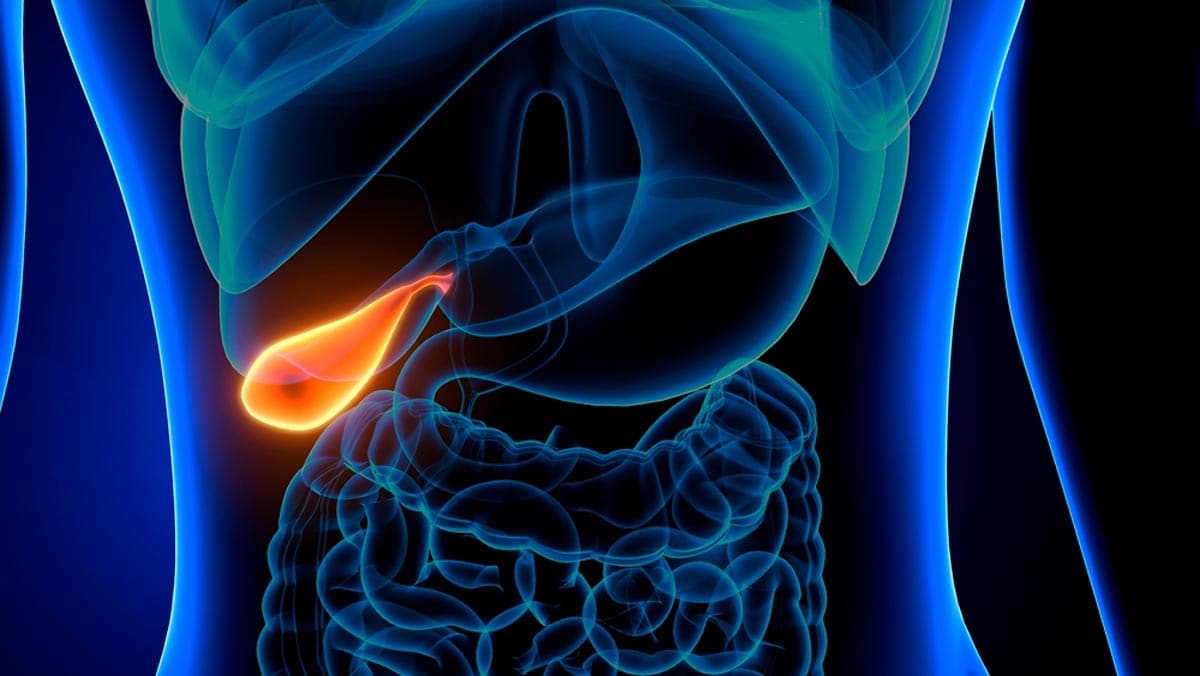The gallbladder is a small, pear-shaped organ tucked under the liver. It stores bile, a fluid produced by the liver and released into the intestines to break down fat in food. Although it plays an important role in digestion, the gallbladder isn’t a vital organ and doesn’t typically cause any problems. But when things do go wrong, gallbladder issues can cause debilitating pain and life-threatening complications. The earlier you catch potential gallbladder problems, the more likely you are to make a full recovery. These are 20 common (and not so common) signs of gallbladder problems.

Your Gallbladder Is Small but Can Cause Big Health Problems
Bile produced in the liver travels through ducts to the small intestine, where it aids in digestion. Specifically, bile helps the intestines absorb nutrients that are fat-soluble. Those are nutrients found in high-fat foods like avocado and nuts and stored in fat tissue in the body. The gallbladder is a storage pouch for bile and helps deliver it to the intestines. The most common gallbladder disease is gallstones, which occur when substances like cholesterol, salts, and calcium build up and harden into small deposits, or stones, inside the organ. Gallstones can cause inflammation or swelling of the bladder, also called cholecystitis. If gallstones grow large enough or move into the bile ducts, they can cause blockage, leading to serious duct infections called cholangitis. Growths on the gallbladder may be benign polyps or, more rarely, gallbladder cancer. Another extremely rare condition called porcelain gallbladder is caused by the accumulation of calcium on the wall of the gallbladder. This condition dramatically increases your risk of cancer and usually requires surgery to remove the gallbladder.
